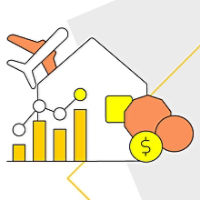The June report also highlights significant spending differences across home ownership type. Renters continue to be challenged, with spending declining 0.9 per cent in the year to June compared with spending increases for those with a mortgage (+1.5 per cent) and outright owners (+2.1 per cent).
Across the states, the ACT recorded the strongest growth in spending (+1.5 per cent), followed by NSW and SA, which both recorded a growth of 0.7 per cent. WA (+0.6 per cent), Victoria (+0.5 per cent), Queensland (+0.4 per cent) and Tasmania (+0.3 per cent) all recorded a more modest growth. In the year to June, the Sunshine State has seen the strongest spending growth, (+5.5 per cent) in Queensland, followed closely by WA (+5.3 per cent) and SA (+5.1 per cent).
CBA Chief Economist Stephen Halmarick said that while consumer spending remains relatively weak, the path of monetary policy will be dependent on several key pieces of economic data in the coming weeks.
“While it was somewhat surprising to see household spending rise for the second month in a row, we have witnessed a significant disparity in spending behaviours across home ownership categories, as renters pull back on spending in the year to June while mortgage holders and outright owners have increased spending,” Mr Halmarick said.
“This suggests younger Australians, who are more likely to be renting, are tightening their wallets and likely spending more on essentials, given these are the fastest growing spending categories so far this year.
“Looking ahead, the Household Spending Insights will be an early indicator of the impact of the income tax cuts and electricity rebates that began on 1 July. Our base case remains for the next move from the RBA to be easing of monetary policy, however this view will be dependent on upcoming employment and inflation data.”
The CommBank HSI index tracks month-on-month data at a macro level and is based on de-identified payments data from approximately 7 million CBA customers, comprising roughly 30 per cent of all Australian consumer transactions.
1 Seasonally adjusted terms.


